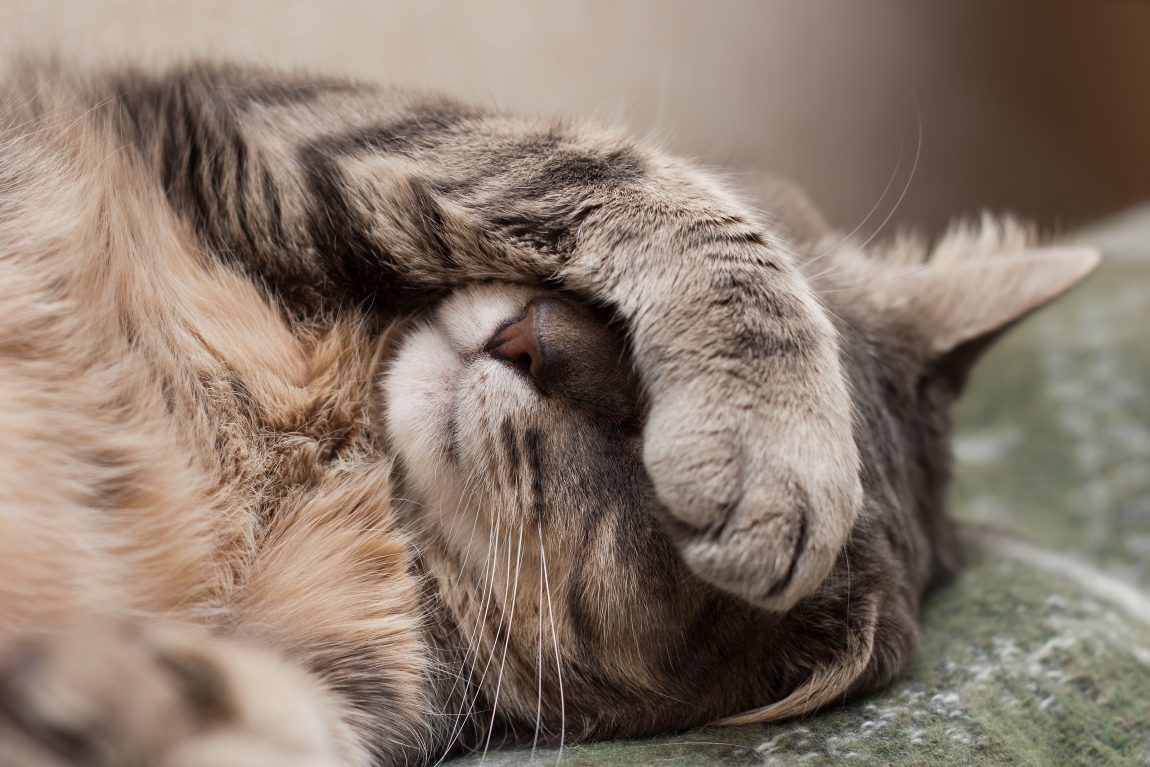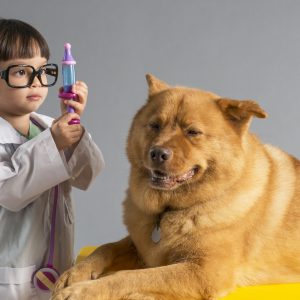
Does My Cat Have An Upset Stomach or is it a Sign of Something More?
Hi everyone! Working as a small animal veterinarian, one of the most common ailments I see in cats are upset stomachs. I would have to say that about 50% of the appointments I see in a day are because of vomiting or diarrhea. Most of these stomach issues are caused by a simple problem with a simple solution. The most common causes of non-complicated vomiting and diarrhea are:
- Food Indiscretion (eating something they do not normally eat);
- Stress; and/or
- Parasites.
I generally prescribe some medications and within a few days the cats are back to being themselves. On occasion, however, it is not so simple. So as pet parents, when should we be concerned that an upset stomach may be a bigger health concern? The best way to answer this question is to start by asking how often your cat is experiencing an upset stomach. An occasional episode of vomiting or diarrhea is usually not anything more serious. If your cat is having an episode every few months that resolves quickly or with medication, I am not too concerned, especially if these episodes are associated with eating something they do not normally eat, or something that may have caused stress (such as their owners leaving on a vacation, or a new pet in the home).
It is important to distinguish vomiting from hairballs in cats, which is a common confusion. Vomiting hairballs are a normal behavior in cats and should not be regarded as a concern. However, on occasion cats may have a difficult time coughing up a hairball or get excessive hairballs (cats that over-groom or are long haired). These cats can be prescribed supplements to help. Inquire with your veterinarian if you are concerned.
The next question to answer is, are there other clinical signs associated with the vomiting and diarrhea that may indicate a more serious problem? And finally, how severe is the vomiting and/or diarrhea? Clinical signs you should look for that require more advanced testing include:
- Multiple episodes of vomiting and diarrhea in a month.
- Weight loss.
- Loss of appetite and refusing food.
- Chronic soft stool.
- Unable to keep food down due to vomiting.
- Lethargy and sickness.
- Appearing painful and uncomfortable.
- Multiple episodes of vomiting throughout the day despite having no food or water in their stomach.
When my patients are showing any of the above-mentioned signs, I always perform more tests, such as blood work, radiographs, and possible ultrasounds to test for more serious diseases. These clinical signs can be associated with more serious conditions such as foreign bodies, pancreatitis, inflammatory bowel disease, or even cancer. If you have any concerns whatsoever, please have your pet evaluated by your veterinarian.
Since digestive health in our pets is crucial to their overall wellbeing and a happy life, how can we help our pets with general vomiting or diarrhea?
Tips to Prevent Diarrhea:
- Do not feed your pet foods that they do not eat regularly (even new treats purchased over the counter can cause diarrhea in cats.
- When switching foods, do it slowly over 2 weeks.
- Make sure your pet is on a monthly heart worm prevention that protects against gastrointestinal parasites.
- Have your pet tested every 6 months to a year for parasites.
Home Remedies to give your Pet for Diarrhea:
- White rice in their regular food.
- Canned pumpkin or pumpkin treats for the fiber (Nummy Tum-Tum is a great pumpkin based treat for cats).
- Bland food (Science Diet I/D Food).
- Probiotics labeled for cats (Purina Fortiflora).
- Greek Yogurt in their regular food.
- Hairball remedy supplements if needed (Tomlynn Hairball Remedy works well for cats having a hard time with hairballs).
Most of the time diarrhea and vomiting resolves in a few days. However, there are more serious diseases that needs to be addressed and treated by your veterinarian. If your pet is having severe diarrhea for longer than a few days, there is vomiting associated with it, or you feel they are acting sick, please contact your veterinarian immediately!




